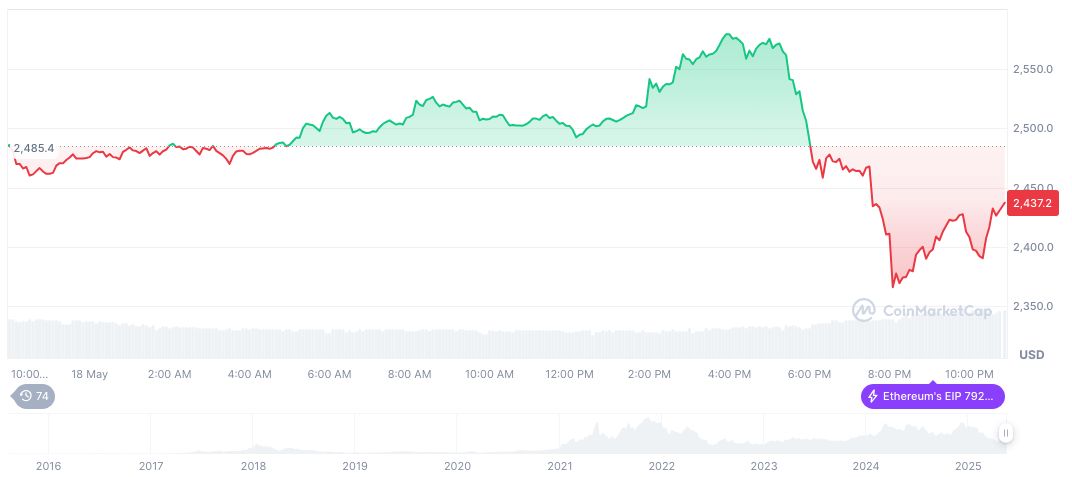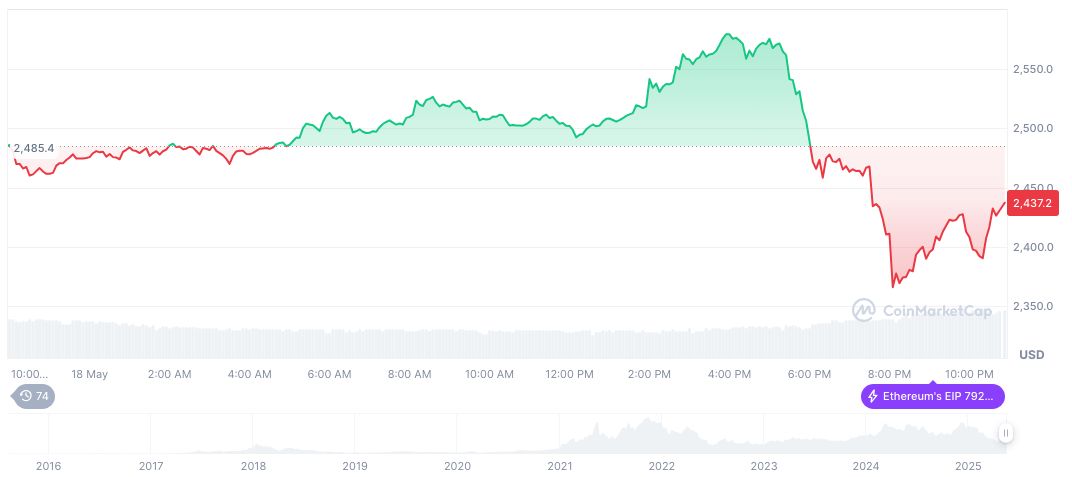- Vitalik Buterin’s proposal introduces partial stateless nodes for Ethereum.
- Changes aim to enhance scalability and decentralization.
- Involves EIP-4444 deployment and gas pricing adjustments.
Vitalik Buterin, Ethereum’s co-founder, has unveiled a proposal focusing on partial stateless nodes, enhancing the Ethereum network’s scalability.
The proposal highlights Ethereum’s strategic shift toward balancing scalability with decentralization benefits, potentially reshaping the network’s architecture.
Buterin Unveils Proposal for Scalable Ethereum Network
Vitalik Buterin has announced a new proposal introducing partial stateless nodes aimed at improving Ethereum scalability. This adjustment seeks to balance network scalability with decentralization by allowing nodes to store only partial state data while maintaining trustless and censorship-resistant access capabilities. Prioritizing the implementation of EIP-4444, the proposal suggests reducing node data retention to 36 days, significantly decreasing disk space needs and enabling a distributed historical storage solution. Furthermore, the gas pricing mechanism will be revised to increase storage costs while lowering execution costs.
These changes could lead to increased decentralization by reducing hardware requirements for node operators, encouraging more individuals to run nodes. As storage costs rise, long-term data-heavy smart contract and protocol developers will likely adapt their models for more efficient use. Despite the proposal’s potential benefits, the immediate market and regulatory responses remain to be seen. Ethereum’s community is expected to engage in lively discussions on technical forums and social media to explore the proposal’s implications and feasibility.
Vitalik Buterin, Co-founder, Ethereum, “Buterin emphasized the importance of personal nodes not only for on-chain verification but also for local RPC data privacy and censorship resistance.”
Ethereum Price Fluctuations and Expert Opinions
Did you know? Vitalik Buterin’s focus on partial stateless nodes emerges from years of ongoing discussions around reducing Ethereum’s storage demands, reviving efforts to balance long-term scalability with the decentralization ethos.
According to CoinMarketCap, Ethereum (ETH) is priced at $2,378.62 with a market cap of $287.16 billion, reflecting an 8.84% market dominance. Over the past 24 hours, ETH’s trading volume has surged by 109.82% to reach $30.46 billion. The token’s price has decreased by 4.87% in the last day and 5.07% over seven days, while its 30-day performance shows a 48.35% increase. Ethereum’s circulating supply stands at 120,727,476 with no maximum supply limit.
The Coincu research team notes that Ethereum’s proposal could spur financial and technological innovations, encouraging more scalable and cost-efficient dapps within the ecosystem. The adjustment to gas pricing is aligned with existing trends aimed at increasing network efficiency, potentially attracting increased usage and greater developer interest in scalable solutions.
Source: https://coincu.com/338408-ethereum-partial-stateless-nodes/

